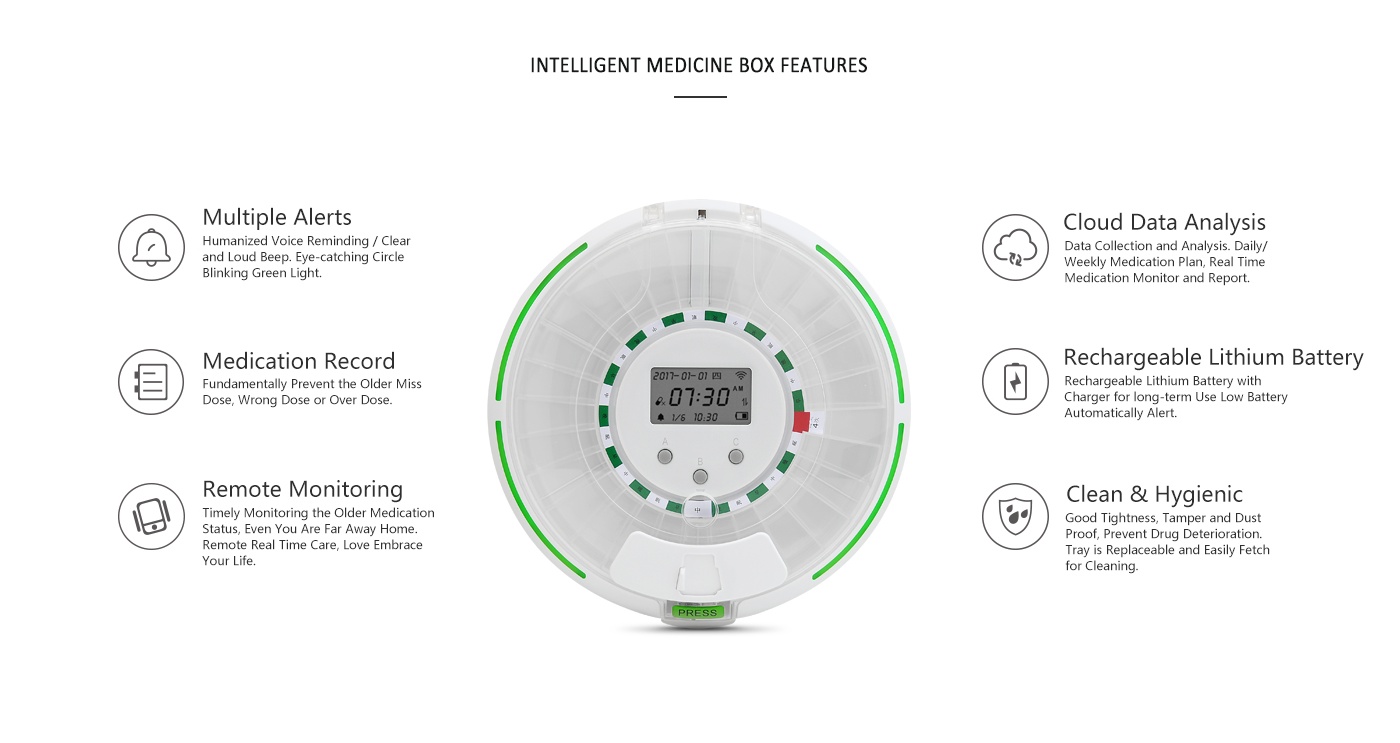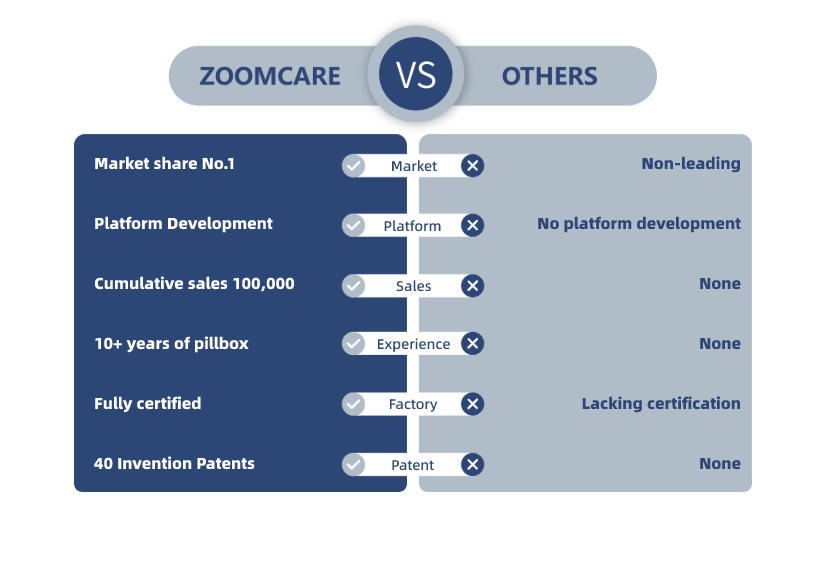Exploring the Pros, Cons, and Best Use Cases for Medication Management
Introduction: The Challenge of Medication Adherence
Medication non-adherence is a global issue, affecting 50% of chronic disease patients and costing healthcare systems billions annually. While traditional pill organizers have been a staple for decades, smart pill dispensers are revolutionizing how we manage medications. But which option is better for you or your loved ones? In this article, we compare the two, focusing on functionality, cost, and suitability for different lifestyles.

What Are Traditional Pill Organizers?
Traditional pill organizers are physical containers with compartments labeled for days of the week or times of day. They require users to manually sort pills and rely on memory or external reminders (e.g., sticky notes) to take medications.

Pros of Traditional Pill Organizers
Affordability: Cost as low as 20, making them accessible to most users.
Simplicity: No technology required—ideal for tech-averse individuals.
Portability: Lightweight and easy to carry in a bag or pocket.
No Power Dependency: No batteries or charging needed.
Cons of Traditional Pill Organizers
Human Error: Risk of missed doses or double-dosing due to forgetfulness.
Limited Capacity: Most hold only 1–2 weeks of medication.
No Alerts: No reminders for when to take pills.
No Tracking: Cannot monitor adherence over time.
What Are Smart Pill Dispensers?
Smart pill dispensers (e.g., ZOOMCARE Smart Dispenser) integrate technology like Bluetooth, Wi-Fi, sensors, and mobile apps to automate medication management. They remind users to take pills, track adherence, and alert caregivers remotely.
Pros of Smart Pill Dispensers
Automated Reminders: Alarms via sound, vibration, or app notifications ensure timely dosing.
Adherence Tracking: Sync data to apps for real-time monitoring and historical reports.
Safety Features: Childproof locks, tamper alerts, and secure compartments.
Large Capacity: Models like ZOOMCARE’s M-Series store 28 days of medication.
Remote Caregiving: Caregivers receive alerts if doses are missed.
Cons of Smart Pill Dispensers
Higher Cost: Prices range from 300, depending on features.
Tech Dependency: Requires setup, app connectivity, and occasional battery changes.
Learning Curve: May be challenging for seniors unfamiliar with smartphones.
Privacy Concerns: Data security must comply with regulations like HIPAA or GDPR.
Key Differences: A Side-by-Side Comparison
| Feature | Traditional Pill Organizers | Smart Pill Dispensers |
|---|---|---|
| Cost | 20 | 300+ |
| Reminders | None | Sound, vibration, app alerts |
| Adherence Tracking | Manual | Automatic via app |
| Safety | Basic compartments | Childproof locks, tamper alerts |
| Capacity | 1–2 weeks | Up to 28 days (e.g., ZOOMCARE M111) |
| Tech Requirements | None | Bluetooth/Wi-Fi, smartphone, or 4G |
| Best For | Simple regimens, budget-conscious users | Complex regimens, remote caregivers |
Who Should Choose Which?
Traditional Pill Organizers Are Ideal If:
You take 1–2 medications daily.
You prefer a low-cost, no-tech solution.
Memory lapses are rare, or a family member assists with dosing.
Smart Pill Dispensers Are Better If:
You manage multiple medications or chronic conditions (e.g., diabetes, hypertension).
You or a loved one has cognitive decline (e.g., dementia).
Remote monitoring is critical (e.g., long-distance caregiving).
Data-driven insights are needed for healthcare providers.
Case Study: ZOOMCARE Smart Dispenser in Action
Scenario: A 75-year-old with hypertension and arthritis often forgot her evening medications. Her daughter, living abroad, struggled to ensure adherence.
Solution: The ZOOMCARE Smart Dispenser provided:
Automated Alerts: Vibrations and app notifications reminded her to take pills.
Remote Monitoring: Her daughter received SMS alerts for missed doses.
Monthly Reports: Shared with her doctor to adjust treatment.
Outcome: Medication adherence improved from 60% to 95%, reducing ER visits.
Addressing Concerns About Smart Dispensers
Privacy: Choose devices with HIPAA/GDPR-compliant encryption (e.g., ZOOMCARE).
Battery Life: Opt for models with 6+ months of battery life (e.g., 4 AA batteries).
Ease of Use: Look for intuitive designs with voice prompts or large buttons.
Conclusion: Making the Right Choice
Traditional pill organizers offer simplicity and affordability, while smart dispensers provide advanced safety and monitoring for complex needs. For seniors, caregivers, or those with chronic conditions, investing in a smart dispenser like ZOOMCARE can be life-changing.




